Video
Summary and KTAs
In this interview, Piyush discusses Stuart Appley's background as the Managing Director in CBRE's global workplace solutions group, where he leads and promotes digital initiatives across CBRE's business services. Stuart previously held positions as CTO at Shorenston Reality Services and CIO at a global investment firm focusing on early-stage investments across the APAC region. He has received various awards for his work in business transformation and innovation.
Stuart emphasizes his passion for transforming and leveraging technology for business value. He reflects on the changes and advancements in technology, particularly in the commercial real estate (CRE) industry, where he has been involved in various innovation projects. The CRE industry has been historically slow to adopt new technologies, but Stuart believes that recent developments and the influx of younger generations are driving change.
They discuss the importance of disruptive technologies, persistence, and learning in the innovation journey. Stuart advises staying persistent, even in the face of failure, and continuing to explore and experiment with new ideas. He also highlights the significance of understanding the value technology can bring and the importance of focusing on augmenting human work, not replacing it.
Regarding the CRE industry, Stuart mentions key trends like the return to office, the hybrid workplace model, and the growing importance of data in making informed decisions. He believes that leveraging data and applying AI and ML will be crucial for driving innovation in the CRE space.
They touch upon Stuart's involvement with non-profit organizations, particularly Genesis Works, which helps underserved high school students prepare for college and gain work experience.
The interview concludes with a reminder to stay curious and keep learning as innovation is an ongoing process that requires adaptability and openness to new ideas. They both emphasize the need to cultivate soft skills, especially when dealing with people in the context of digital transformation.
KTAs
Stuart Appley is the managing director in CBRE's global workplace solutions group, with a background in technology and innovation in the commercial real estate (CRE) industry.
Stuart's passion lies in transforming and leveraging technology for business value and working with entrepreneurs and new technologies to drive innovation.
The CRE industry has been historically slow to adopt new technologies, but recent developments and the emergence of a younger generation are driving change and increasing interest in innovation.
Disruptive technologies, persistence, and continuous learning are crucial in the innovation journey, even when facing obstacles and failures.
Stuart emphasizes the importance of focusing on augmenting human work rather than replacing it with technology and finding areas where technology can remove redundancies and improve processes.
Key trends in the CRE industry include the return to office, the adoption of hybrid workplace models, and the increasing significance of data in decision-making, with AI and ML playing a crucial role.
Stuart is involved with non-profit organizations like Genesis Works, which helps underserved high school students prepare for college and gain work experience, reflecting his commitment to giving back to the community.
Overall, the interview provides insights into Stuart Appley's career, his views on technology and innovation in the CRE industry, and his advice for driving successful digital transformations and embracing emerging technologies.
Full Transcript
Piyush Malik: Digital Agenda is all about data, analytics, cloud, AIML, and emerging technologies that are transforming not only companies, but also entire industries and even our lives. HI, my name is Piyush Malik, a curious mind who wears and juggles multiple hats as an engineer, a management consultant, practitioner, a builder, a thought leader, entrepreneur, and a C suite executive.
I have been in the industry helping organizations realize and navigate the value of data, analytics, applied AIML, and emerging technologies. I have created strategies and transformation programs that helps them compete with the digital natives.
Hello, everyone. Welcome to the digital agenda. This today we are going to be meeting with Stuart Appley. Stuart is a good friend. We've worked together in the past, and he's the managing director in CBRE's global workplace solutions group. He currently leads the global tech data and innovation portfolio dedicated to a leading technology firm in Silicon Valley, where he leads and promotes digital innovations across CBRE's business services.
He was previously a CTO at Shorenston Reality Services, a leading commercial real estate owner and operator. And before that, he was the CIO at a global investment firm that focused on early stage investments across the APAC region. He is Constellation Business Transformation 150 awardee and a past winner of RealComm's Digi Award for Innovation.
So here we are. Welcome Stuart. Welcome to the Digital Agenda.
Stuart Appley: Thank you, Piyush. And thank you for having me on this podcast. Looking forward to it.
Piyush Malik: I gave the audience a little bit info about you, but I really want to know in 120 seconds or less, “Who's the real Stuart Appley? “
Stuart Appley: Stuart Apley is someone who always has a thirst for knowledge!
Always looking ahead to try to see how we can transform and leverage technology for business value. Love working with entrepreneurs, love working with new technologies, but always thinking three steps ahead to think, Hey, not really what we do today, but really, where do we improve things where we transform and how do we leverage some of the new technologies, which are just flying at us day by day?
To really transform and add business value for any enterprise.
Piyush Malik: Awesome. And I remember the very first time that I met you, on a similar zoom call back in my early days of cloud startups. I was early in my Google cloud and AI/ML journey. And you guys had already started doing some innovation projects, and that's where we came in to help you out and explore together the realm of the Google Cloud.
How would you say things have evolved in the five to six years since we started working with you? And, and what has your experience been with Cloud, AI, ML,specifically in the CRE space?
Stuart Appley: It's been amazing. I mean, I think you could even say the, the acceleration of innovation in the industry almost doubles every six months.
That's what it feels like. So when we started our journey with you say five, six years ago we had done some great things around doc AI, Lease Abstractions, things like that, which were pretty new in the industry. Commercial real estate has always been a slower adopter because it's been such a fragmented industry!
You have so many vendors, you have so many companies involved. There's not one company that owns it all. There's so many types of real estate. It is very fragmented, very complicated. So it's been an industry that's been slow to adopt, but, but there have been key areas. And we've worked together on that and how we can leverage cloud.
AI/ML for some of that benefit. So when we did our journey, say five, six years ago, that was really innovative and we did some great work. And what was interesting about it is we implemented it. We have a pilot and then it got going. And we did a couple of innovations that time too. There was one that we even kind of put on hold around, you know, the first one was customer service, right?
And then the other one was document AI. I just kind of mentioned, but on the customer service one, we put that on hold. Came back to it about two years later, and the whole architecture had changed significantly! And that was maybe over a two year period, and that was in the Google space. You look forward now, and again, everything that's been done, the architecture, the democratization of AI, the ability to leverage, I mean, Generative AI, obviously we could talk about that, but it's just, the acceleration is amazing.
And so the value's already been known, has always been there. It's how do people understand it? You know, I think the good thing about what's happening today is that people are getting it all of a sudden! Even with commercial real estate. I mean, there are now many, it's just, it's the thing.
I did some advising work for a startup in AI in commercial real estate and, you know, that was two years ago.And that company had really trouble getting CIOs and others within commercial world to understand some of the value you look for today now, and it's just like 180 degrees difference. 180 degrees difference!
Piyush Malik: Hmm. Interesting. Interesting. And, I recall the Smart ticket stuff that we were doing and then you championed so many innovations.
You know, the NLP based system and the augmented reality driven conversation that we were having, how we will incorporate AR, VR into, into the AI ML system and the cloud system. And then you know, you obviously the doc AI based solution was good. Now there was a time that you were also working or maybe exploring a little bit on blockchain.
Tell me a little bit more on that.
Stuart Appley: Yeah. So that's another great example. So that was probably six years ago. Very early in the blockchain days. And I got to participate in CBRE's first Pilot in the space, and we were doing it from lease documents and leveraging blockchain, and it was interesting that we were able to say, yeah, we're able to prove out that using distributed ledger actually can work.
But then that was it. It was put on a shelf. And again, that was five or six years ago. I think it's still those type of. Applications are still being looked at, and I think that's something that still has a ways to go to truly see business value. It's one of those things where it's a chicken and egg situation!
You need an ecosystem to really get blockchain to be you know, truly accelerate the business. And I don't think, the industry is there yet on blockchain. But that is another perfect example. It seems like everything that you and I have touched and others. It's always been like three, four or five years ahead of mainstream which is great, right?
And, you know, it's fun to try these things. It's fun to try and fail. It's fun to try and, you know, hit walls. And it's actually really exciting now to see some of these things become a little bit more mainstream. I mean, the AR VR look at, you know, now with the Apple's new glass their, their vision pro it's again, it is as totally now there's a whole new Interest in this domain.
And, you know, it's very exciting.
Piyush Malik: Yeah, absolutely. I mean, Vision OS is something which is attracting a lot of entrepreneurs into it. And while I myself haven't looked into it as much as I would like to. You know, the whole metaverse thing, the NFTs that we used to talk about two, three years back, they're kind of slowly dying down.
And now with Apple jumping in, and of course NVIDIA also being very much into their own space. I am very excited about the future actually. You know, as much as you know, time passes by. You know, these innovations and how the inventions are converted into practical applications. That's amazing.
And it's the creativity of the humankind. And that's something which, you know, gives the ray of hope that yes, machines may be rising. AI may be rising, but the role of humans will still be there. It's the creativity. And it's the innovation that we bring. Yeah,
Stuart Appley: I agree with that. I think it's the right space.
The augmented reality is ripe for leveraging across business. I mean, Seabury has a good practice in it now using HoloLens where we can go in and do triage and remote triage and, you know. Bring in data in addition to what people are seeing in machinery. And, that's going to be just more, I think that's going to be mainstream very soon.
And I do agree. The whole metaphors thing was really kind of, it got, it distracted the whole space. It really did. But now I do see a path forward. That's really. True business value.
Piyush Malik: Let's shift the gear a little bit deeper into the CRE. And again commercial real estate is something that you worked a number of firms with.
And do you, at all as a person dedicated towards innovation and emerging technologies, do you ever feel stifled in a environment where the industry. Is not the, the, the CRE industry is not moving as fast. In terms of adopting technology. Have you had any of those instances and how you have overcome.
Stuart Appley: Yeah, you know it. Yes. CRE has been an industry, as I mentioned earlier, that's that really has been slow to adopt technology. You may hear about PropTech and other things around startups and the whole property technology space. It's ripe for disruption. Commercial real estate has historically been in industry where you're not only fragment, as I mentioned earlier, but very relationship based, right?
And so I remember a CEO telling me once, “ we're skeptical because we've always been successful, like, why change things? And so there's hasn't always been a feel for the need to change. Well, the last couple years and, you know, with everything, I think that has changed a lot. And I do see commercial real estate trying to catch up.
It's still because it is so big because it's so fragmented. It's always going to be a little bit behind, but these things are really coming into it now. And but it is, it is a slower adoption rate within the industry than others. Absolutely.
Piyush Malik: Yeah. If you go to any of these conferences there's shining things on, on display but it takes a long time to actually integrate them into the environment, into, into the company itself.
So you know, for the folks that are not as much into CRE, do you mind spelling out what are the trends that you are seeing and the role of innovation ecosystems for commercial real estate?
Stuart Appley: Well, today, the big issue in commercial real estate is. “Return to office, right?
You know, let's be real there. The whole pandemic threw the industry for loop. People weren't coming into an office and we're talking about office commercial real estate. That's key. Now, there are other aspects of commercial real estate. There's industrial logistics, which is. Has exploded because of the pandemic and continues to be very real.
There are other offshoots around data center. You know, those are those are transformative. But so in the office sector, it really is. How do you, how's the hybrid notion, which is really, I think we all, we all agree. It's not going to be… people aren't going to come back five days a week, nor should they.
Right? Commute, especially in the Bay Area where we are and others are prohibitive. And, you know, the, your productivity does go down. But there is value in being in an office at times and being very purposeful of when that happens. So how do you blend those to make it very efficient, collaborative?
How do you get productivity? How do you continue to raise those? And so that alone a thing. And so how do you improve collaboration? How do you make virtual, both virtual and in office and make that hybrid experience truly transformative. So that alone is a big topic.
And then because data is very central to real estate, whether commercial or multifamily or residential you know, real estate is a very broad data centric Industry not as deep in the number of records that you hit, but very broad. But it is very critical. And so being able to leverage that data, be able to access it with AI/ ML being able to do things automatically and to automate with data is really the key innovation trend that I think that is, you know, the next step in taking this industry for.
Piyush Malik: Right! And, and what would be the top few pieces of advice for anyone who's getting started in this journey?
What would you advise them to do?
Stuart Appley: Regarding commercial real estate or just broadly?
Piyush Malik: Commercial real estate and and, and innovation and technology.
Stuart Appley: You know, with innovation technology into your question earlier about, you know, did I ever get frustrated? Yeah, you get frustrated, but you need to be persistent.
You need to keep trying. You need to keep doing it. And so that is don't give up. Right. You know, you fail once or you hit the wall and you don't succeed. You keep trying to figure out a way of doing it. There is, especially when you believe that [00:14:00] there is value there. I do again believe the commercial real estate industry is changing.
There's a younger generation coming in that is more accepted of that. So, within commercial real estate, it's it again is coming up with those ideas that. Where does it truly create you know, where are you removing keystrokes? Where are you changing the process? So instead of three steps, it's one step.
Where are you taking actions from data that you can make, you know you don't have to necessarily replace jobs. We're not talking about that. We're talking about augmenting the way you work and helping you the way you work. Think about things you do on a day to day basis that really are redundant. Or, hey, if I had something that data proceses information, like an example, if there's a work order that came in.
And right now the process might be, Oh, you got to figure out who the planner, you know, who's on the road and who you might assign this to, or you use NLP and the actual words that they're asking in that request. Why can't you just automate some of those, those things? So then even with generative AI around the marketing, the documents.
See, commercial real estate is a very document intensive industry. How do you bring all that and, make quick decisions or quick insights into into your data domain? You know, there's a lot of opportunity for doing innovation within this industry at the moment, because again, there's a lot of potential to disrupt.
Piyush Malik: Right! So get involved with disruptive technologies, being persistent and never give up and you know, continue with the trend. Keep up with the trends and enable yourself. Keep learning. I would say it's it's the persistence because the It's not, never easy to change status quo and digital transformation requires a lot of fortitude, a lot of hard work, and you've got to take your team along with you.
And sometimes you've got to manage up sometimes you've got to take everybody in consensus mode, but sometimes you've got to, you know, put your foot down as well. And as we have seen in some of our digital transformation projects, it becomes sometimes a game of chess when there are different stakeholders involved.
So more importantly, you know, it's not only technology. That we deal with. We deal with processes, we deal with people. Dealing with people is the biggest skill. And I would say the soft skill that can't be undermined technology is developing at a fast pace, but people are not developing their EQ and the soft skills at, at that fast pace.
So that's, my personal observation in the world today.
Stuart Appley: You are hundred percent spot on! There's of course the people -process -technology adage and the hardest part is the people. Absolutely. And you made a point that I think is really important that you said about learning, On the other piece of advice and you were spot on there too.
Have that thirst for knowledge. Always be looking at what is, what is happening, industry trends. What are the new things going on? Dive into it and try it, you know, just because people are saying no right now doesn't mean that you can't, you know, give it a try and try to show value. You know, don't take no for an answer.
Piyush Malik: Yeah, yeah! And one of the things that I like about you is that you are always out there expressing your thought leadership in one way, shape or form, and that's why you've been recognized by these various groups. So of course, congratulations on that. But, you know, I really learned back when we went to that propTech CRE conference in Boston, a few years back, and we were together doing that session.
It was interesting to see so many people out there from different companies. And yet you know, the examples of [innovation in the industry were not that very prominent. And I hope things change for the better future. And we are able to attract talent, which is so difficult to do.
Thanks a lot for joining us. Let’s stay Innovation focused while hey are focused on making rapid progress.
So I would say, there are other other things that I forgot to mention, and perhaps you also didn't bring it up, was your involvement with non profits and serving on boards. So, talk a little bit about your experience doing that and then we can close it out.
Stuart Appley: Yeah, just real quickly. Yeah, you were talking about the CoreNET conference that you and I did in Boston around 2018/ 2019 time frame.
And if you remember, there was interest, but it wasn't like if you did that today, the room would be overbooked, right? And so you and I are kind of always a little couple of steps ahead is what it seems like, but the nonprofits, I appreciate that.
So we have a great partnership with Genesis works just as one example, it's a nonprofit national that works with [00:19 underserved high school students to be able to get them prepared for college. CBRE working with interns that come in on their senior year and, you know, then get them, you know, they actually have a job 20 hours a week, afternoons. It's, it's, it's done in conjunction with the school.
And we're in our fourth year of that that I've been working with and it's just been, it's been fantastic. You know, these kids, they're usually the first in their family to go to college or be ready to go for college. They're so enthused. They're so just excited. And I love it. You know, I love working with them.
And just really also acknowledge some people on my team who are working with the historically Black colleges in Atlanta, doing some innovation and emerging technology with that. And you know, I'm honored to be able to partner with them and, and learn from them on some of the innovation.
In the diversity and nonprofit that they're doing and so passionate about the space and love, you know There's a huge opportunity for a lot of these these young people to to bring into the industry
Piyush Malik: That's awesome. Awesome to know that you've been involved with Nonprofits as well . As you know, give back has been in my DNA as well.
And you've seen me in the industry doing a lot of these kinds of things. And there's so much more that we could talk about Stuart, but in the spirit of keeping it crisp and small, what is the one closing thought that you have before we close today?
Stuart Appley: Keep that thirst for knowledge. Keep that. Be out there being inquisitive.
Try to understand some of the new things coming in. Give them a try. And don't ever stop, you know trying to learn. That's the number one thing I can say.
Piyush Malik: Awesome.! And with that, thank you so much, Stuart from my soul to yours. It's a Namaste - a way of expressing gratitude for the time you've spent with me here and also the amazing opportunities we've had to work in the past.
Looking forward to reconnecting again soon. And with that, goodbye for now.

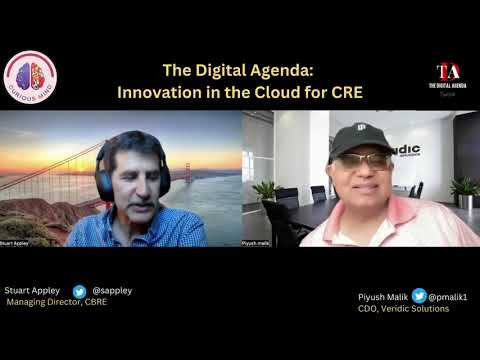




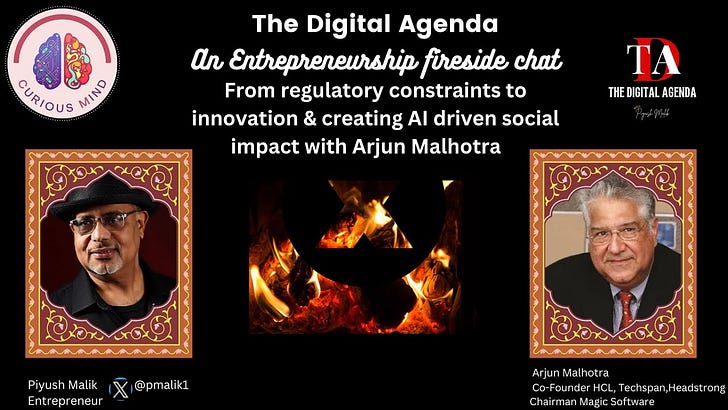

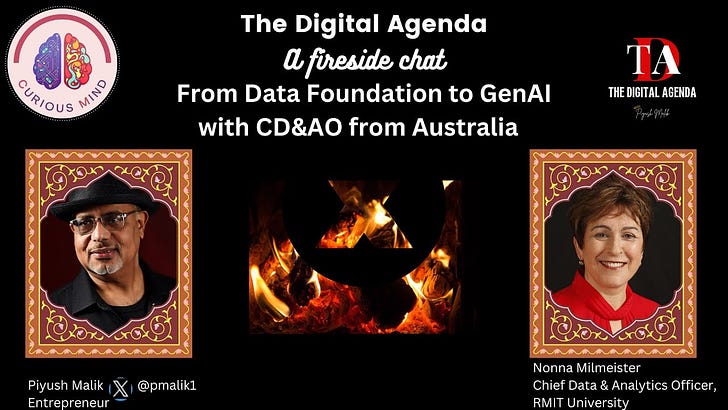
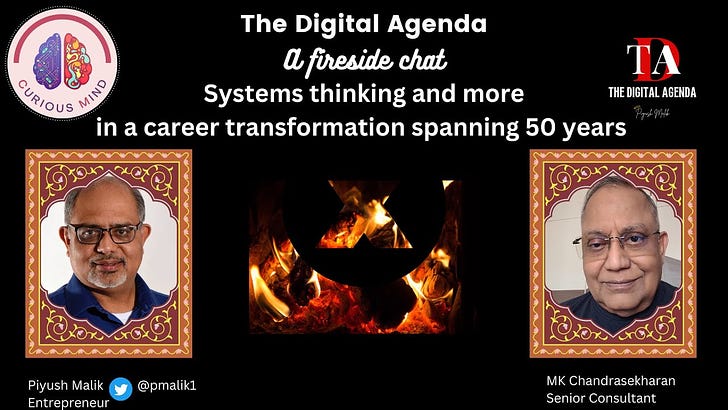
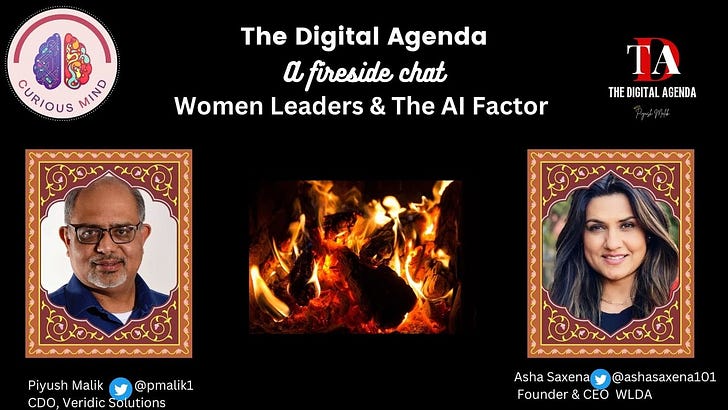
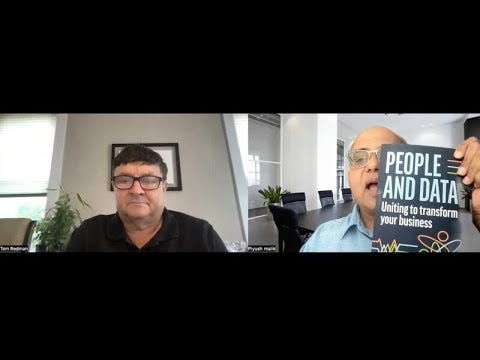
Share this post